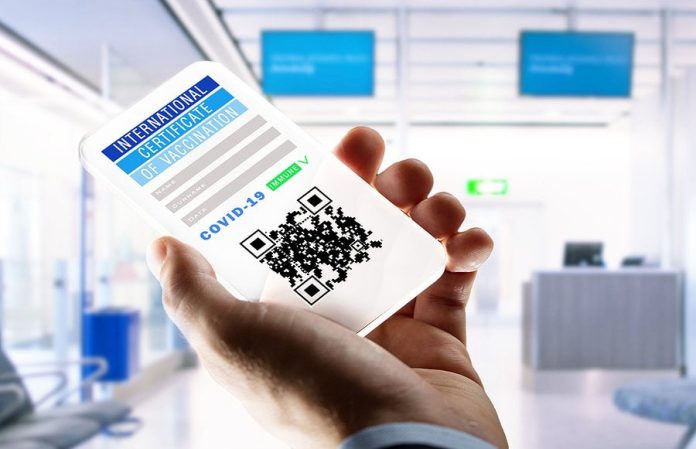COVID-19 Delta variant is pushing technological change in the electronic security industry in a way we did not see in the initial outbreak, with many businesses pressed to incorporate additional strategies into security and safety procedures, which increasingly include vaccination status and no-touch authentication.
Part of the issue is growing case numbers – late August they passed 1000 daily in NSW for the first time with no end in sight for the current lockdown. Increasingly, it looks like near global vaccination and boosters will be the only way to quash the virus.
During the past month, food manufacturer SPC has announced mandatory vaccination of staff, while Qantas, too, will require frontline staff to be fully vaccinated by November. Meanwhile, Australia’s Industrial Relations Minister Michaelia Cash said that while vaccination was free and voluntary, the Australian government strongly recommends that everyone gets vaccinated as soon as they can.
The Australian government’s unwillingness to make vaccination mandatory is not expressed at the corporate level, where directors exposed to suit should their strategies fail are implementing it across multiple industries. Other countries are seeing the same trend. In the U.S. staff have been sacked at CNN for attending work without being vaccinated, while Australia’s Charles Sturt University said recently that student placement in 2022 would be very difficult for those who could not show proof of full vaccination.
Meanwhile in NSW, premier Gladys Berejiklian said workplaces have the right to mandate vaccination and if they decide they have a particular policy of who is allowed to work in their workplace under a pandemic during a lockdown, ‘that was a matter for them’. Victoria and New Zealand are also battling Delta variant outbreaks and it’s impossible to imagine they will not face tough questions around mandatory vaccination and managing mandatory vaccination over the coming months.
It’s worth pointing out, there are organisations in ANZ intending to make vaccination mandatory for workers who attend the office, while allowing workers who are unvaccinated to continue working from home but this will need to be managed carefully.
Meanwhile, a national cabinet plan agreed last month plans to use digital records to verify vaccination status using a QR code to create a form of vaccination ‘passport’ and has said state governments which don’t participate will face reductions in federal financial support. All this is part of a trend pushing organisations towards stricter rules around vaccination and the pressure will only increase as case numbers climb, hospital beds fill, numbers of vaccinations increase, and businesses, workers and home-schooling parents groan under the strain of widespread lockdowns.
While politicians try to find a balance of right noises to steady their popularity as lockdowns bite, business owners and management teams cannot rely on appearances. Even if government is reluctant to break faith with more libertarian portions of their voter base, backed into a corner, private business will have no compunction, as the recent Qantas decision clearly attests. Australia’s biggest airline just wrote down losses of around $A1.7 billion for 2020 and its directors will leave no stone unturned in their efforts to keep the kangaroo flying. Other business leaders are watching and they, too, will be forced to make decisions that will ensure the survival of their organisations, including mandatory vaccination and the need for vaccination management at the access control level.
For organisations looking to protect workplaces, vaccination rules managed by access control systems are the only way to seamlessly manage workplace COVID-19 vaccination. Other options are simply too cumbersome and expensive. Many access management systems already incorporate demands for training and health status – this that means slotting COVID-19 vaccination status into the works won’t be complicated. While none of the access control manufacturers are talking about it, there’s no doubt that behind the scenes, work is being done.
Something else that’s noteworthy on the technology front is the decision by South Australia’s government to manage at-home COVID quarantining using face recognition technology. Premier Steven Marshall said it would be “implausible as borders open to have everybody in hotel quarantine…as the risk diminishes around the world, we want to do a trial for at-home quarantine”.
Marshall said geo-location and facial recognition software would be used to track people who were quarantining. They will be contacted at random and required to provide proof of their location within 15 minutes.
If successful, it’s certain use of face recognition technology for home quarantining would be rolled out nation-wide, with subsequent positive impacts on user acceptance of the technology in other authentication applications.
#sen.news









